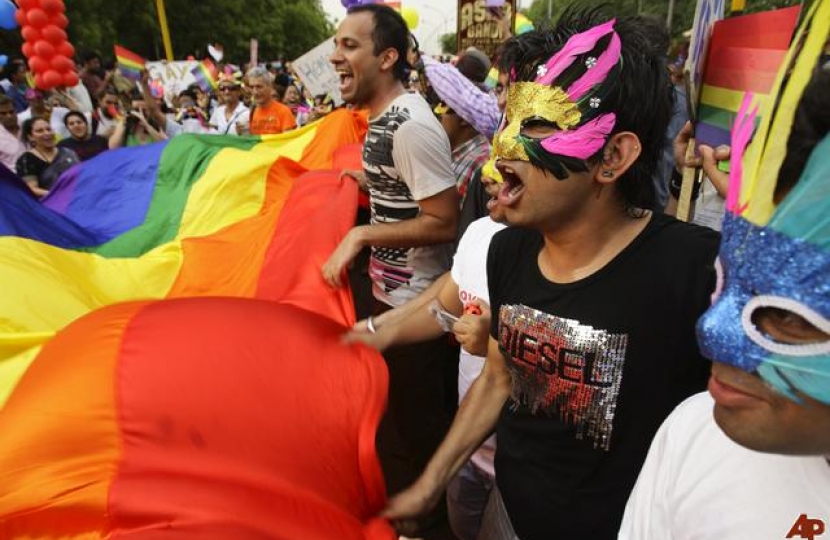
Indian Homosexuality “Re-Criminalisation” Briefing
1) What has happened in India?
The Supreme Court of India ruled on 11 December 2013 that homosexuality remains a criminal offence under Section 377 of the Indian Penal Code. This reverses a 2009 judgment by the Delhi High Court which declared that applying Section 377 to consensual homosexual sex to be unconstitutional.
2) What does Section 377 of the Indian Penal Code say?
The Indian Penal Code[1] was drafted by the Whig Lord Macaulay in 1861. Section 377 of the code criminalises “carnal intercourse against the order of nature” (usually interpreted to mean sex other than heterosexual penile-vagina intercourse) with a sentence of “imprisonment for life” or “imprisonment which may extend to ten years and shall also be liable to fine”.
3) How was the original case brough to the High Court?
The Naz Foundation, and NGO working in HIV/AIDS intervention and prevention, brought a lawsuit calling for the de facto decriminalisation of homosexuality to the Delhi High Court in 2001. After an eight-year legal battle involving the Supreme Court the lawsuit returned to the High Court which ruled in 2009 that applying Section 377 to consensual sexual acts of adults in private, violated Articles 21, 14 and 15 of the Indian Constitution[2].
4) Does this mean homosexuality was decriminalised in 2009?
Not quite. The High Court ruling interpreted 377 as applying only to non-consensual penile non-vaginal sex and penile non-vaginal sex involving a minor, but also recommended Parliament to amend the law to remove “a great deal of confusion.” As the section remains on the statute unamended the courts are able to interpret the definition of “carnal intercourse against the order of nature”. The Indian Attorney General did not appeal the 2009 ruling, stating that “Section 377 was not a reflection of the existing Indian values and traditions, rather it was imposed upon the Indian society by the colonisers due to their moral values.” However the 2013 Supreme Court ruling has stated that only parliament has the power to decriminalise homosexuality.
5) What happens next?
Gay rights activists have said that they will approach the court to review its decision. The ruling stated that "the legislature must consider deleting this provision (Section 377) from law as per the recommendations of the attorney general". India's Law Minister has stated that he will respect the ruling, however an amendment to the law is unlikely soon due to general elections to be held next year. While the government of Prime Minister Manmohan Singh was broadly support the 2009 ruling, the socially conservative Hindu nationalist opposition is opposed.
